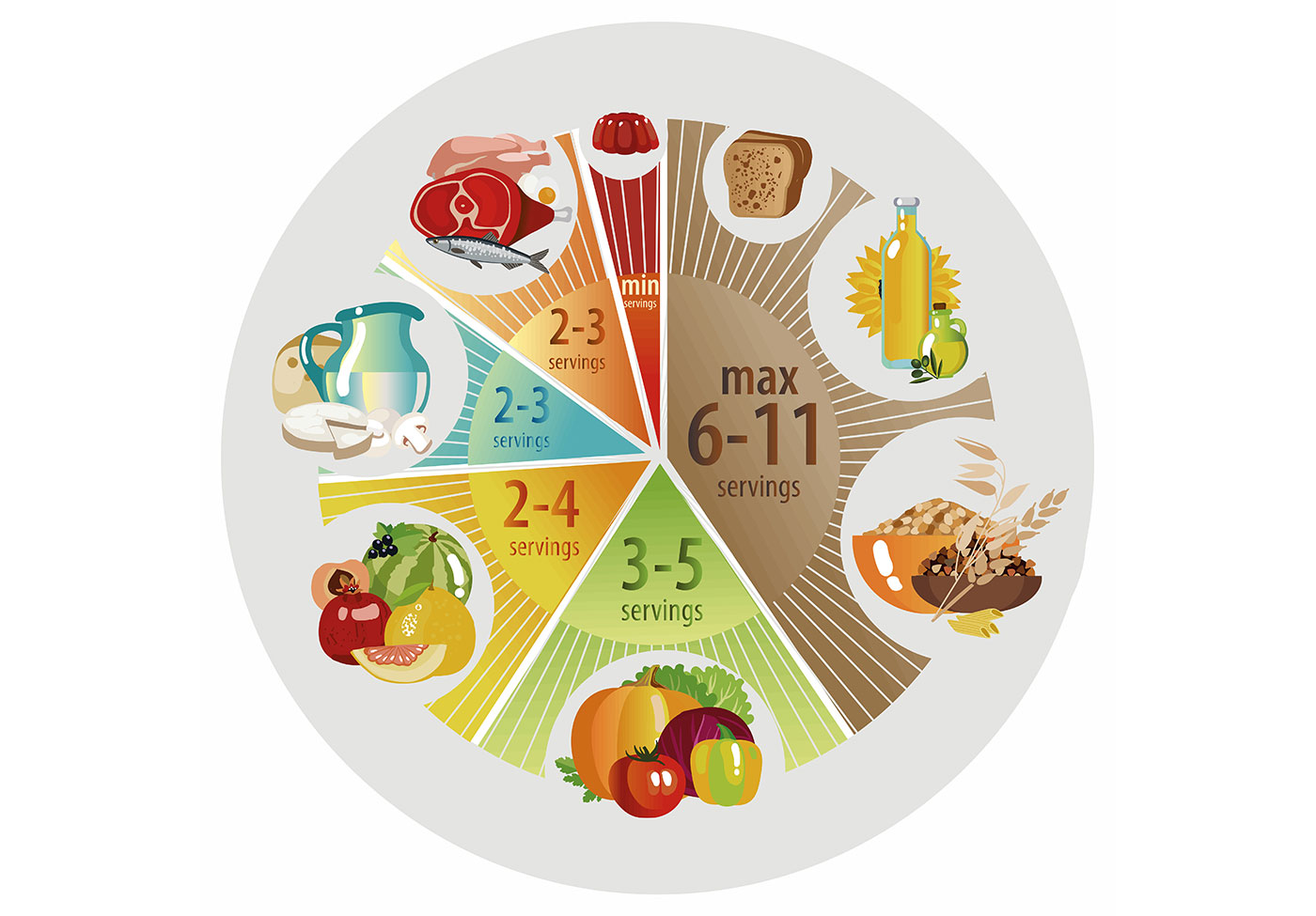Experts say that a healthy, balanced meal consists of at least 5 portions of fruit and vegetables per day, base meals on high fiber starchy foods like potatoes, rice, or pasta, proteins like eggs, fish, and lean meat, plus dairy and healthy oils. The pie chart below serves as a guide for creating healthy, balanced meals.
[Balanced Meal Pie Chart]

Admittedly, it can be a challenge to eat balanced meals that contain all the nutrients you need every day.
Here are some key vitamin ingredients that can help supplement you in your day-to-day.
Thiamine Mononitrate (Vitamin B1)
Did you know that Thiamine is required by the body so it can properly use carbohydrates? It is also needed for proper muscle function, including the heart. Also called Vitamin B1, Thiamine is found in many foods including yeast, cereal grains, beans, nuts, and meat. It is also often used in combination with other B vitamins. Some individuals use thiamine to help boost their energy levels, as well as their learning abilities. It is also used to help increase energy and maintain a positive mental attitude.
Riboflavin (Vitamin B2)
Riboflavin is a vitamin the body needs for growth and overall good health. It helps break down carbohydrates, proteins, and fats to produce energy, and it allows oxygen to be used by the body. This process, in particular, is important because oxygen is ultimately the fuel that allows our cells to produce energy from the food we eat.
Vitamin B2 is found in organ meats, poultry, fish, and eggs, dairy products (milk and cheese), as well as green vegetables such as broccoli and collard greens.
Pyridoxine Hydrochloride (Vitamin B6)
You shouldn’t take Vitamin B6 for granted either. Your body uses it to make and use protein and glycogen, which is the stored energy in your muscles and liver. Vitamin B6 also helps form hemoglobin, which carries oxygen in your blood, allowing your body to do its necessary functions and more.
This vitamin also plays a key role in mood regulation, partly because vitamin B6 is necessary for creating neurotransmitters that regulate emotions, including serotonin and gamma-aminobutyric acid (GABA).
Cyanocobalamin (Vitamin B12)
The human body needs vitamin B12 to make red blood cells, nerves, DNA, and carry out other functions. It is crucial in the normal function of the nervous system because it helps synthesize myelin, a protective sheath that forms a protective coating around nerve fibers. It is referred to by some as “comfort food of the nerves” because it helps keep our mental state fully balanced by ensuring our nerves function properly and that they regenerate when stressed.
Dietary sources of vitamin B12 include beef, chicken, liver, fish, eggs, and dairy products such as low-fat milk, cheese, and yogurt.
Nicotinamide
Nicotinamide is a form of vitamin B3, which is also called niacin. Like other forms of vitamin B3, nicotinamide is converted by the body into NAD+, a helper molecule that fuels many key processes like converting food into energy, fortifying the cell’s defense mechanisms, and repairing damaged DNA.
We all know that what we eat fuels the body but not all the nutrients we get from food gets broken down into energy. Taking multivitamins with vitamin B3 and other helper vitamins can help serve as catalysts in converting food into energy that the body can use for daily tasks and functions.
Calcium Pantothenate
Also called vitamin B5, this vitamin plays a key role in the Krebs cycle, which is one of the body’s reactions that convert glucose into usable energy. Vitamin B5 also helps create red blood cells that transport oxygen to the body's tissues in exchange for carbon dioxide.
The best dietary sources of vitamin B5 include corn, cauliflower, kale, tomatoes, peanuts, soybeans, lobster and salmon.
Ascorbic Acid (Vitamin C)
Vitamin C is known to boost the body’s immune system against common sickness. It helps in the production of lymphocytes and phagocytes (white blood cells) that help defend the body against different infections. It is also a powerful antioxidant and agent of collagen synthesis, promoting healthy skin by minimizing the skin cell-damaging effects of free radicals. With the demands of today’s lifestyle, our bodies need more energy to do the things we need and want to do to make us happy. But while it’s ideal to fuel up with balanced meals every day, this is easier said than done.
So in order to get the right nutrients your body needs, complement your balanced diet with Multivitamins + Zinc (Enervon Z+) to help you get all the essential vitamins and nutrients that you need to do your daily tasks and still have extra energy to do the things that you want so that you can live life to the fullest.
If symptoms persist, consult your doctor






